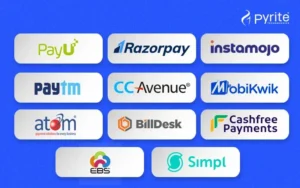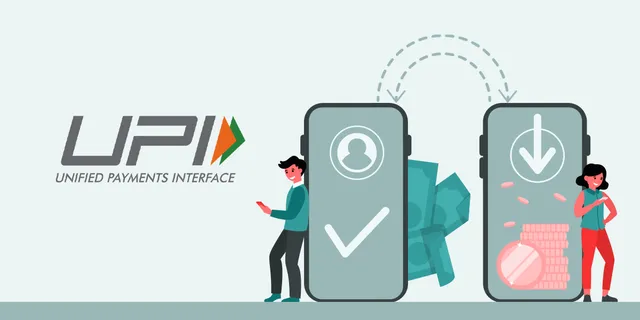Introduction: The Rise of Digital Payment Gateways in India
In recent years, India has seen a remarkable shift towards digital payments, transforming how businesses handle transactions. Among the most revolutionary changes is the rise of UPI payments (Unified Payments Interface), a fast, secure, and cost-efficient solution that has altered the payment landscape. With UPI and other payment gateways gaining prominence, Indian businesses are finding new opportunities for growth, expansion, and customer engagement in the digital era.
As businesses continue to embrace digital payment solutions, the benefits are becoming clear improved cash flow, enhanced customer experience, and expanded reach across India. In this article, we will explore the profound effects of UPI payments and other payment gateways on Indian businesses, the key advantages they offer, and how they shape the future of commerce in the country.
The Rise of UPI Payments in India: Transforming the Payment Landscape
Why UPI is Crucial for Indian Businesses
UPI payments have become a preferred choice for consumers and businesses alike, primarily due to their seamless integration, speed, and low transaction costs. Introduced by the National Payments Corporation of India (NPCI), UPI facilitates instant payments between bank accounts using mobile devices. This has simplified the process of making payments for businesses and consumers across India, particularly in smaller towns and rural areas where cash transactions were previously predominant.
With UPI payments, businesses can offer real-time, hassle-free transactions, making it easier for customers to pay via their mobile phones. As more users adopt UPI-enabled apps such as Google Pay, PhonePe, and Paytm, businesses across the nation are seeing an increase in customer engagement and sales.
Key Benefits of UPI Payments for Indian Businesses:
Speed and Efficiency: UPI payments offer instantaneous processing, ensuring businesses receive payments in real time, allowing them to maintain a consistent cash flow and manage their finances efficiently. The elimination of waiting times associated with traditional payment methods helps businesses function smoothly.
Low Transaction Costs: With minimal fees, UPI is an affordable option for businesses, especially small and medium enterprises (SMEs), who previously struggled with the high costs of payment processing through cards and other traditional systems.
Broad Customer Reach: The widespread adoption of UPI payment apps like Google Pay, Paytm, and PhonePe enables businesses to cater to a broad customer base, regardless of their location. This integration creates opportunities for businesses to tap into a more diverse customer demographic.
Consumer Trust and Loyalty: UPI payments are widely trusted by consumers due to their secure nature. Two-factor authentication (2FA) and encryption ensure safe transactions, which builds consumer confidence and encourages repeat purchases.
The Role of Other Payment Gateways in India
While UPI payments dominate the digital payments landscape, other payment gateways like Razorpay, CCAvenue, Instamojo, and Paytm also play a pivotal role in simplifying payments for Indian businesses. These gateways offer various services to businesses, from supporting card payments to providing mobile wallets, and are critical for expanding the options available to businesses in India’s diverse and rapidly growing e-commerce sector.
Key Benefits of Payment Gateways for Indian Businesses:
Multiple Payment Options: Payment gateways enable businesses to accept a variety of payment methods such as credit/debit cards, UPI payments, net banking, and mobile wallets, giving consumers more flexibility in how they choose to pay.
Improved Security: With advanced security protocols, including data encryption and fraud detection measures, businesses can ensure that customer transactions are protected against fraud and cyber threats, reducing the risk of financial losses.
Convenient Integration: Many payment gateways offer easy integration with popular e-commerce platforms, such as Shopify, WooCommerce, and Magento, allowing businesses to seamlessly incorporate digital payment methods into their websites or apps.
Global Reach: For businesses looking to expand internationally, some payment gateways support multi-currency payments, enabling merchants to cater to a global audience. This helps businesses grow beyond domestic borders and serve international customers with ease.
Impact of UPI and Payment Gateways on Business Growth
Empowering Cashless Transactions
The proliferation of UPI payments and digital payment gateways has fueled India’s transition towards a cashless economy. This trend is not only enhancing consumer convenience but is also contributing to a broader financial inclusion movement, bringing previously underserved regions into the digital economy.
For businesses, embracing UPI payments and other digital payment gateways offers unparalleled advantages. The shift away from cash payments means businesses can streamline their processes, reduce administrative overheads, and offer a faster, more efficient service to their customers.
Key Benefits for Business Growth:
Higher Conversion Rates: By adopting digital payment solutions like UPI and payment gateways, businesses can create a smoother, faster checkout process for customers. This convenience often results in increased conversion rates, as customers are more likely to complete their transactions without friction.
Efficient Operations: UPI payments and payment gateways help businesses automate many aspects of the payment process, from invoicing to order processing. This efficiency reduces human error, speeds up financial operations, and allows businesses to focus on growth rather than managing payments manually.
Increased Sales Volume: As digital payment gateways enable businesses to accept payments from a variety of customers across geographies, they can reach a larger market. This increased accessibility often leads to a rise in sales, particularly among businesses selling products or services online.
Overcoming Challenges in Adopting Digital Payment Gateways

Despite the many advantages, businesses may face certain challenges when adopting UPI payments and other digital payment gateways.
Challenges:
Integration Issues: Integrating UPI payments and other payment systems with legacy business models may require initial investment in technology and staff training. This can be challenging for smaller businesses with limited resources.
Security Risks: While UPI payments and payment gateways are designed to be secure, the rising threat of online fraud and cybercrime means businesses must continually invest in security features to protect consumer data.
Digital Literacy: In some regions, consumers may not be familiar with using UPI payments or other digital payment methods, which can hinder adoption. Businesses may need to invest in customer education and awareness campaigns to promote the benefits of digital transactions.
What’s Next:
To overcome these challenges, businesses should partner with trusted payment gateway providers that offer comprehensive integration support and fraud protection services. Furthermore, businesses should stay updated on emerging technologies like AI fraud prevention, biometric authentication, and blockchain payments to ensure their payment systems remain secure and future-proof.
The Future of Digital Payments and UPI in India

India’s digital payments landscape is evolving rapidly, and UPI payments will continue to be at the forefront of this transformation. As new technologies like AI, blockchain, and biometrics are integrated into payment gateways, businesses will be able to offer enhanced services, improved security, and even faster payment processing.
Key Trends to Watch:
AI-Driven Fraud Prevention: Artificial intelligence is playing a significant role in fraud detection systems, helping businesses identify suspicious transactions in real time and reducing the risk of losses due to fraud.
Biometric Payments: The future of payments lies in biometric authentication, such as fingerprint and facial recognition technology, which can improve security while providing a frictionless payment experience for consumers.
Cross-Border Payments: As Indian businesses expand globally, cross-border payment gateways will continue to evolve, allowing companies to handle international transactions smoothly and at a reduced cost. Technologies like blockchain payments will further streamline cross-border payments.
Mobile Wallet Expansion: The rise of mobile wallet apps like Paytm, Google Pay, and PhonePe will continue to shape the digital payments landscape, making mobile wallets a central payment tool for businesses and consumers alike.
Conclusion: The Impact of UPI and Payment Gateways on Indian Businesses
The rise of UPI payments and digital payment gateways has dramatically impacted Indian businesses by providing them with faster, more secure, and cost-effective ways to handle transactions. As cashless payments continue to grow, businesses must adapt to these changes to remain competitive and meet the expectations of today’s tech-savvy consumers.
By adopting UPI payments, digital payment gateways, and emerging technologies, businesses can not only improve their operational efficiency but also enhance customer experience and drive growth. Whether you’re a small retailer or a large e-commerce business, embracing these innovations will help you stay ahead of the curve and thrive in the digital economy.


